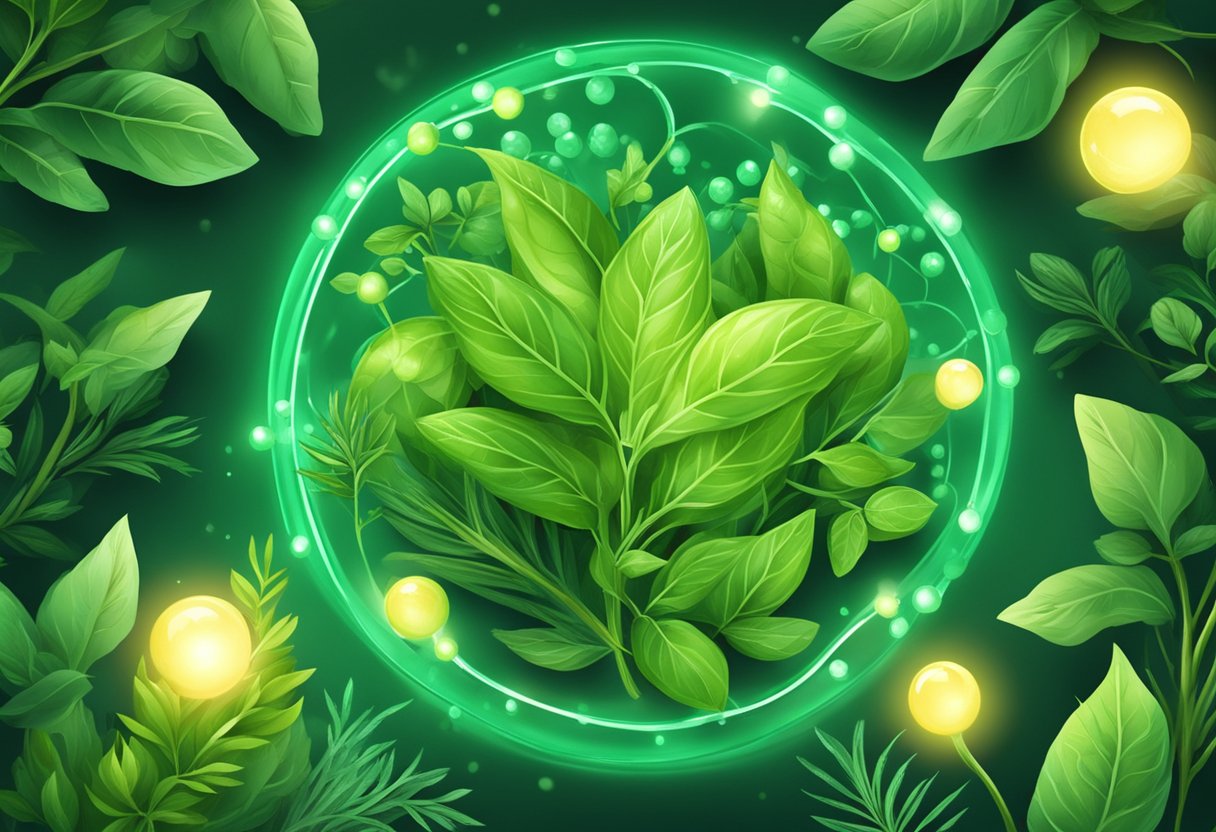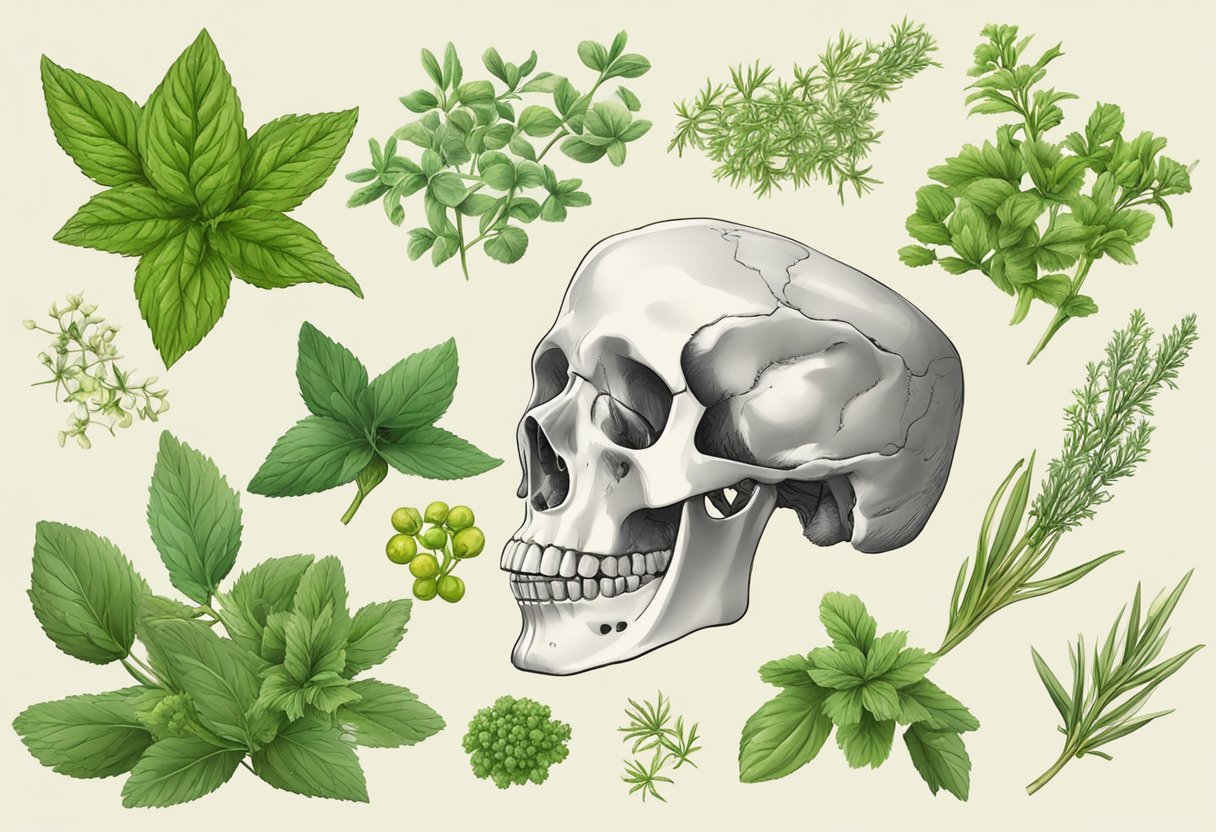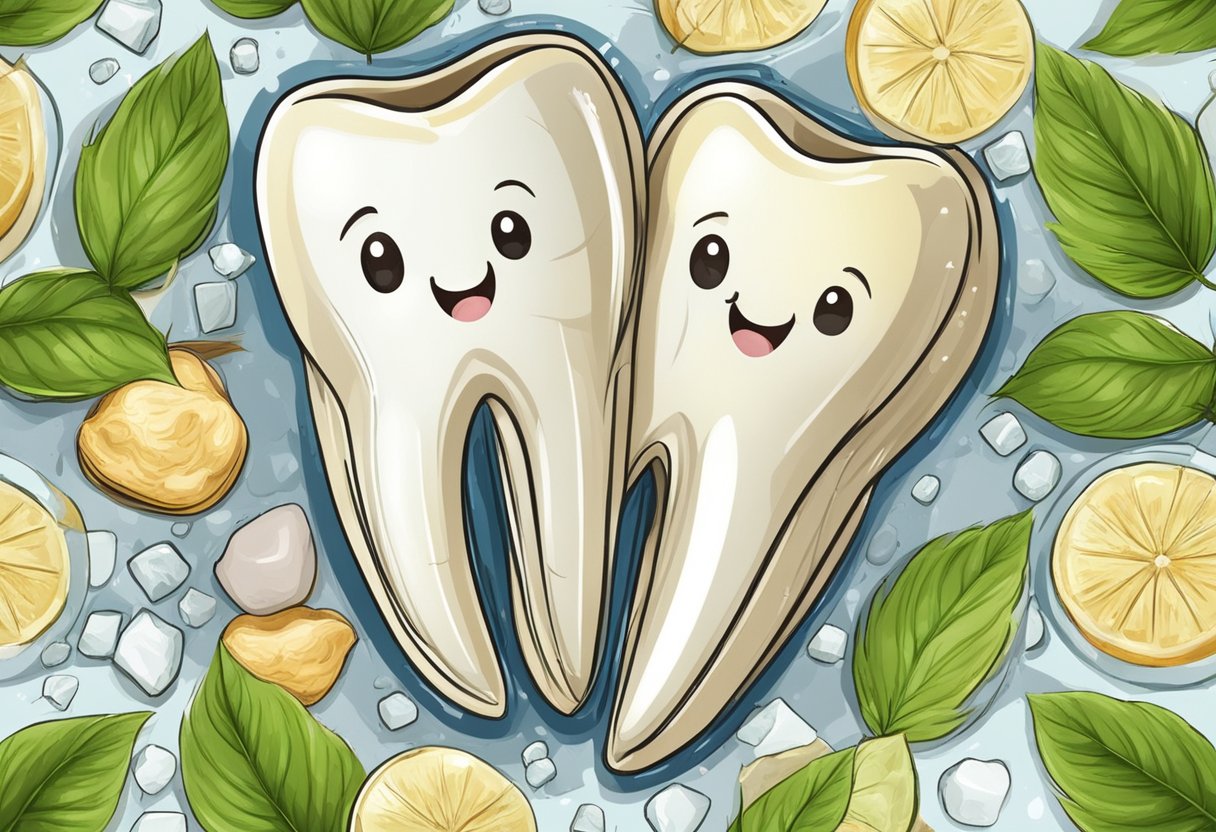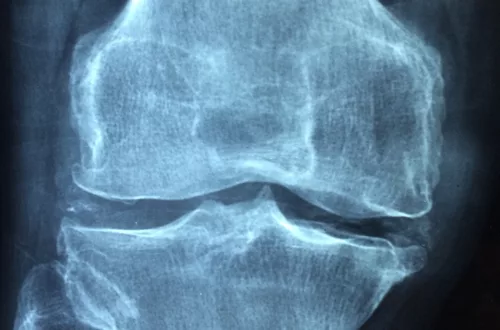Herbs have been used for centuries to treat various health conditions, including those related to reproductive health. Testicular health is an important aspect of male reproductive health, and there are several herbs that have been traditionally used for this purpose. These herbs are believed to promote healthy testicular function, improve sperm count and motility, and prevent or treat conditions that affect the testicles.

One such herb is Ashwagandha, also known as Withania somnifera, which has been used in Ayurvedic medicine for centuries to treat a variety of conditions, including male infertility. Studies have shown that Ashwagandha may help improve sperm count, motility, and morphology, as well as reduce oxidative stress and inflammation in the testicles. Another herb that has been traditionally used for testicular health is Tribulus terrestris. This herb is believed to increase testosterone levels and improve sperm count and motility, although more research is needed to confirm these effects.
Other herbs that may be beneficial for testicular health include ginseng, maca root, and fenugreek. Ginseng has been used in traditional Chinese medicine to treat male infertility and improve sexual function, while maca root is believed to enhance libido and improve sperm quality. Fenugreek is a popular herb that is often used to boost testosterone levels and improve sexual function. While these herbs have been traditionally used for testicular health, more research is needed to confirm their effectiveness and safety.
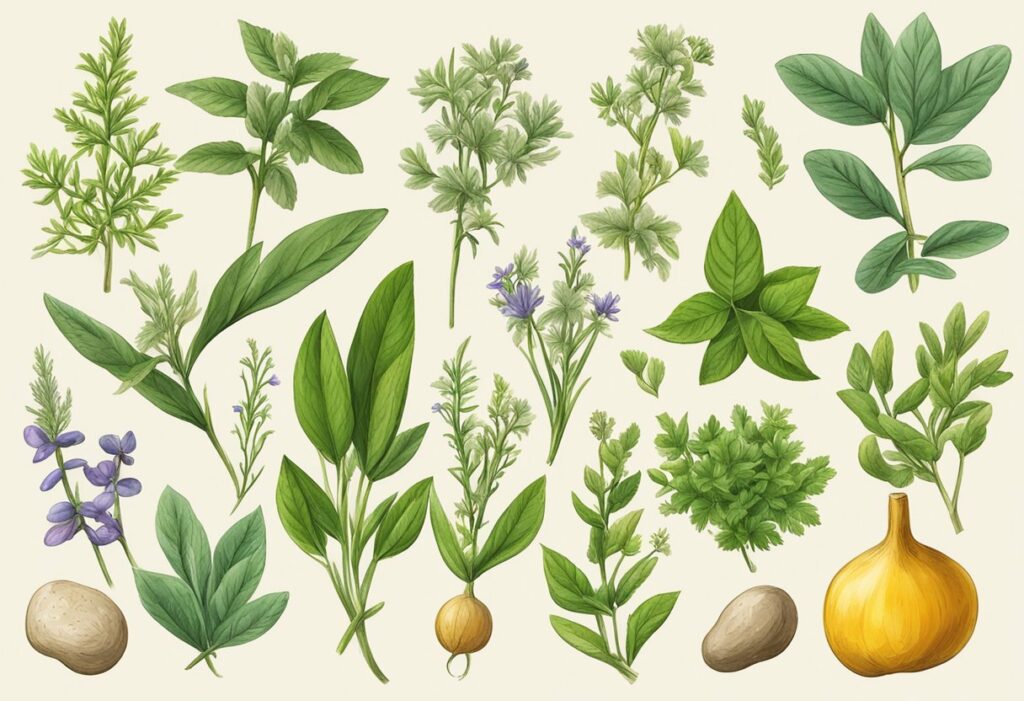
Understanding Testicular Health
The testicles are a crucial part of the male reproductive system, responsible for producing sperm and testosterone. They play a vital role in maintaining male sexual characteristics and overall health. Therefore, it is essential to maintain good testicular health to ensure optimal reproductive function and overall well-being.
The main functions of the testicles are the production of sperm and testosterone. Sperm is produced in the seminiferous tubules, which are made up of testicular cells called Sertoli cells. Testosterone is produced in the Leydig cells, which are located outside the seminiferous tubules.
The production of sperm and testosterone is regulated by the gonadotropin-releasing hormone (GnRH) released by the hypothalamus and luteinizing hormone (LH) and follicle-stimulating hormone (FSH) released by the pituitary gland. These hormones work together to maintain the balance of the male reproductive system.
Testicular tissue is also an essential factor in maintaining good testicular health. The tissue should be healthy, with no abnormalities or damage. Undescended testicles, where one or both testicles fail to descend into the scrotum, can increase the risk of testicular cancer and other health problems.
Herbs have been used for centuries to promote male reproductive health, and some have been studied for their potential benefits. However, it is important to note that more research is needed to confirm these benefits, and herbal remedies should not be used as a substitute for medical treatment.
In conclusion, maintaining good testicular health is essential for optimal reproductive function and overall well-being. Understanding the main functions of the testicles, the role of testicular cells, and the importance of testicular tissue is crucial in promoting good testicular health.
Herbs and Testicular Health
Herbal medicine has been used for centuries to promote male reproductive health. Several herbs have been studied for their effects on testicular health, including Tribulus Terrestris, Tongkat Ali, Withania Somnifera, Maca Root, Saw Palmetto, and various Ayurvedic herbs.
Tribulus Terrestris is a popular herb used in traditional medicine to promote male reproductive health. It contains saponins, which are believed to increase testosterone levels and improve sperm quality. Studies have shown that Tribulus Terrestris can improve sexual function and increase testosterone levels in men with low testosterone levels.
Tongkat Ali, also known as Eurycoma Longifolia, is a herb commonly used in traditional medicine to improve male sexual health. It is believed to increase testosterone levels and improve sperm quality. Studies have shown that Tongkat Ali can improve sexual function and increase testosterone levels in men with low testosterone levels.
Withania Somnifera, also known as Ashwagandha, is an Ayurvedic herb commonly used to improve male reproductive health. It is believed to improve sperm quality and increase testosterone levels. Studies have shown that Withania Somnifera can improve sexual function and increase testosterone levels in men with low testosterone levels.
Maca Root is a herb commonly used in traditional medicine to improve male sexual health. It is believed to increase libido and improve sperm quality. Studies have shown that Maca Root can improve sexual function and increase sperm count in men with low sperm count.
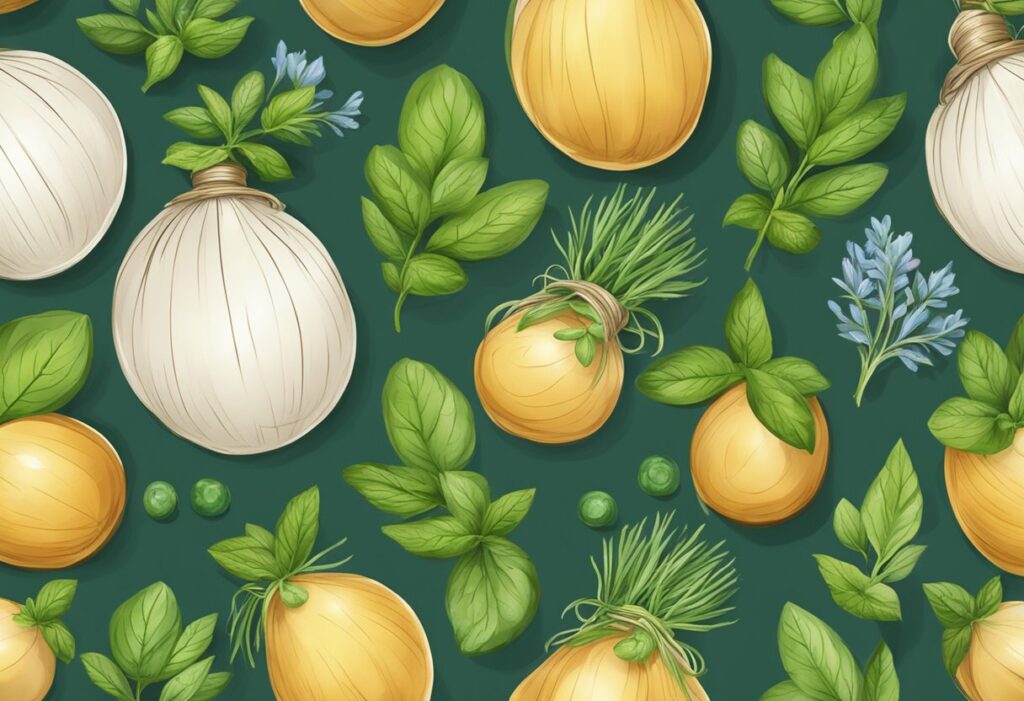
Saw Palmetto is a herb commonly used to promote prostate health. It is believed to improve urinary function and reduce inflammation in the prostate gland. Studies have shown that Saw Palmetto can improve urinary function and reduce inflammation in men with prostate problems.
Ayurvedic Herbs
Ayurvedic herbs are a group of herbs commonly used in traditional Ayurvedic medicine to promote male reproductive health. These herbs include Ashwagandha, Shilajit, and Gokshura. Studies have shown that Ayurvedic herbs can improve sexual function and increase testosterone levels in men with low testosterone levels.
Herbal remedies and supplements are available in various forms, including capsules, powders, and teas. Herbal formulas that combine several herbs are also available. It is important to consult a healthcare professional before taking any herbal remedies or supplements, especially if you have a medical condition or are taking medication.
In conclusion, several herbs have been studied for their effects on testicular health. Tribulus Terrestris, Tongkat Ali, Withania Somnifera, Maca Root, Saw Palmetto, and various Ayurvedic herbs have been shown to improve sexual function, increase testosterone levels, and improve sperm quality in men with low testosterone levels. Herbal remedies and supplements are available in various forms, but it is important to consult a healthcare professional before taking any herbal remedies or supplements.
Herbs and Male Fertility
Male fertility is a complex process involving the production, maturation, and transport of sperm. Herbs have been used for centuries to improve male fertility and treat infertility. Here are some herbs that have been studied for their effects on male fertility:
Herbs and Sperm Health
Sperm health is an important factor in male fertility. Herbs such as ashwagandha, maca, and ginseng have been shown to improve sperm motility, quality, and concentration. Ashwagandha, also known as Indian ginseng, has been shown to improve sperm count and motility in infertile men. Maca, a root vegetable from Peru, has been shown to increase sperm count and motility. Ginseng has been shown to improve sperm quality and concentration.
Herbs and Testosterone Levels
Testosterone is a hormone that plays a key role in male fertility. Herbs such as tongkat ali, tribulus terrestris, and fenugreek have been shown to increase testosterone levels in men. Tongkat ali, also known as Malaysian ginseng, has been shown to increase testosterone levels and improve sperm quality in infertile men. Tribulus terrestris has been shown to increase testosterone levels and improve sexual function in men. Fenugreek has been shown to increase testosterone levels and improve sperm count and motility.
In conclusion, herbs have been used for centuries to improve male fertility and treat infertility. Herbs such as ashwagandha, maca, and ginseng have been shown to improve sperm health, while herbs such as tongkat ali, tribulus terrestris, and fenugreek have been shown to increase testosterone levels. However, more research is needed to fully understand the effects of these herbs on male fertility.
Herbs and Sexual Dysfunction

Many men experience sexual dysfunction, which can manifest in a variety of ways, including erectile dysfunction, premature ejaculation, and low testosterone levels. While there are many conventional treatments available, some men prefer to explore natural remedies, including herbs.
Several herbs have been studied for their potential to improve sexual function in men. One such herb is ginseng, which has been shown to improve erectile dysfunction and sexual desire. Another herb, horny goat weed, has been traditionally used to treat sexual dysfunction and has shown promise in improving erectile function.
Tribulus terrestris is another herb that has been studied for its potential to improve sexual function in men. It has been shown to increase testosterone levels and improve sexual desire and performance.
In addition to these herbs, ashwagandha has also been studied for its potential to improve sexual function in men. It has been shown to improve sperm quality and motility, as well as increase testosterone levels.
While these herbs have shown promise in improving sexual function in men, it’s important to note that more research is needed to fully understand their potential benefits and any potential risks or side effects. Men who are experiencing sexual dysfunction should talk to their healthcare provider before trying any herbal remedies.
Herbs and Testicular Cancer
Testicular cancer is a relatively rare form of cancer that affects the testicles, which are the male reproductive glands located in the scrotum. It is estimated that about 1 in 250 men will develop testicular cancer during their lifetime. While the causes of testicular cancer are not fully understood, there are certain risk factors that have been identified, such as a family history of the disease, undescended testicles, and abnormal testicular development.
There is some evidence to suggest that certain herbs may have a beneficial effect on testicular health and may help to reduce the risk of testicular cancer. For example, studies have shown that the herb ashwagandha may have anti-cancer properties and may be effective in preventing the growth and spread of cancer cells in the testicles. Similarly, the herb milk thistle has been shown to have antioxidant and anti-inflammatory properties that may help to protect the testicles from damage and reduce the risk of cancer.
It is important to note, however, that more research is needed to fully understand the effects of these herbs on testicular health and to determine the optimal dosages and methods of administration. Additionally, while some herbs may have potential benefits for testicular health, it is always important to consult with a healthcare professional before using any herbal supplements, especially if you have a history of testicular cancer or other medical conditions.
It is also worth noting that while testicular cancer is a male-specific disease, there is some evidence to suggest that certain risk factors for breast cancer, such as exposure to environmental toxins and hormonal imbalances, may also increase the risk of testicular cancer. Therefore, maintaining overall good health and reducing exposure to environmental toxins may be important for reducing the risk of testicular cancer and promoting overall testicular health.
Herbs and Oxidative Stress
Oxidative stress can cause damage to cells, tissues, and organs, including the testes. It occurs when there is an imbalance between the production of free radicals and reactive oxygen species (ROS) and the body’s ability to detoxify and repair the resulting oxidative damage. Oxidative stress has been linked to male infertility and reduced testicular function.
Herbs have been used for centuries to treat various ailments, and some have been found to have antioxidant properties that may help reduce oxidative stress. Below are some herbs that have been studied for their potential benefits in reducing oxidative stress in the testes:
Ashwagandha
Ashwagandha (Withania somnifera) is an herb commonly used in Ayurvedic medicine. It has been found to have antioxidant properties and may help reduce oxidative stress in the testes. In a study on rats, ashwagandha was found to increase the activity of antioxidant enzymes and reduce lipid peroxidation in the testes.
Ginseng
Ginseng (Panax ginseng) is a popular herb used in traditional Chinese medicine. It has been found to have antioxidant properties and may help reduce oxidative stress in the testes. In a study on rats, ginseng was found to increase the activity of antioxidant enzymes and reduce lipid peroxidation in the testes.
Horny Goat Weed
Horny goat weed (Epimedium grandiflorum) is an herb commonly used in traditional Chinese medicine. It has been found to have antioxidant properties and may help reduce oxidative stress in the testes. In a study on rats, horny goat weed was found to increase the activity of antioxidant enzymes and reduce lipid peroxidation in the testes.

Tribulus Terrestris
Tribulus terrestris is an herb commonly used in Ayurvedic and traditional Chinese medicine. It has been found to have antioxidant properties and may help reduce oxidative stress in the testes. In a study on rats, tribulus terrestris was found to increase the activity of antioxidant enzymes and reduce lipid peroxidation in the testes.
Overall, these herbs have shown promise in reducing oxidative stress in the testes. However, more research is needed to fully understand their potential benefits and to determine the optimal dosage and duration of use. As with any herbal supplement, it is important to consult with a healthcare professional before use.
Clinical Studies and Herbal Medicine
Several clinical studies have been conducted to investigate the potential benefits of herbal medicine for testicular health. In a recent study, the effects of various botanical products, including herbal medicines, on male fertility were evaluated. The study found that some herbal medicines have a positive impact on male fertility, while others may have negative effects. However, the authors of the study noted that more research is needed to determine the safety and efficacy of these products.
In a small study, the effects of a traditional Chinese herbal formula on testicular function were evaluated. The formula was found to improve sperm count and motility in men with oligospermia. Similarly, a preliminary study found that a combination of herbs and nutrients improved semen quality in men with infertility.
Previous studies have also investigated the effects of specific herbs on testicular health. For instance, a study found that the herb Eurycoma longifolia improved sperm quality and increased testosterone levels in men with infertility. Another study found that the herb Tribulus terrestris improved sexual function and increased testosterone levels in men with low sperm count.
Clinical trials have also been conducted to evaluate the effectiveness of herbal medicine for testicular health. In one study, the effects of a combination of herbs and nutrients on semen quality were evaluated in men with infertility. The study found that the treatment improved sperm count, motility, and morphology.
Overall, while some clinical studies have shown promising results for the use of herbal medicine in improving testicular health, more research is needed to determine the safety and efficacy of these products. It is important for individuals to consult with a healthcare provider before using any herbal remedies for testicular health.
Herbs and Health Issues
Herbs have been used for centuries in traditional medicine to treat various health issues. When it comes to testicular health, there are several herbs that are believed to be beneficial. These herbs may help address underlying causes of testicular problems, such as hormonal imbalances or inflammation.
One of the most commonly used herbs for testicular health is ashwagandha. This herb is known for its ability to balance hormones and reduce stress. It may be particularly helpful for men with low testosterone levels, as it has been shown to increase testosterone production in some studies.
Another herb that is often used for testicular health is ginseng. Ginseng is believed to improve circulation and boost energy levels, which may help improve overall testicular function. It may also help reduce inflammation and oxidative stress, which can contribute to testicular damage.

Saw palmetto is another herb that is often used for testicular health. It is believed to help reduce inflammation and improve urinary function, which may be beneficial for men with prostate problems. It may also help regulate hormonal imbalances and improve overall testicular function.
Other herbs that may be beneficial for testicular health include tribulus terrestris, maca root, and horny goat weed. These herbs are believed to help improve testosterone levels, boost libido, and improve overall sexual function.
While herbs can be beneficial for testicular health, it is important to note that they should not be used as a substitute for medical treatment. Men with underlying medical conditions or health issues should always consult with a healthcare provider before using any herbs or supplements.
Side Effects and Considerations
While herbal remedies can be effective in promoting testicular health, it is important to be aware of potential side effects and considerations.
Some herbs may have adverse effects on the body, especially when taken in large quantities or for extended periods. For example, celery seed extract has been shown to have protective effects on testicular health in rats, but high doses may cause gastrointestinal upset or skin irritation in humans. Similarly, the use of Korean herbal formula (modified Ojayeonjonghwan) has been shown to increase androgen receptor expression in aging rats, but its effects on humans are not well studied and may have adverse effects.
It is also important to note that herbal remedies may interact with other medications or supplements. For example, some herbs may interfere with blood thinners or increase the risk of bleeding. Therefore, it is important to consult with a healthcare professional before taking any herbal remedies, especially if you are taking other medications or have a medical condition.
Additionally, it is important to purchase herbs from a reputable source and to follow dosage instructions carefully. Some herbs may be contaminated with heavy metals or other harmful substances, which can have adverse effects on the body. It is also important to note that natural does not always mean safe, and some herbs may have toxic effects on the body at high doses.
In summary, while herbal remedies can be effective in promoting testicular health, it is important to be aware of potential side effects and considerations. It is recommended to consult with a healthcare professional before taking any herbal remedies, to purchase herbs from a reputable source, and to follow dosage instructions carefully.
Conclusion
In conclusion, there is some evidence to suggest that certain herbs may have a positive effect on testicular health and male fertility. However, caution must be exercised in interpreting the conclusions of these studies, as many of them have limitations and further research is needed to confirm their findings.
Some of the herbs that have been studied for their potential benefits to testicular health include milk thistle, ginseng, and ashwagandha. Milk thistle has been shown to have antioxidant properties that may help protect the testes from damage caused by oxidative stress. Ginseng has been suggested to improve sperm quality and quantity, while ashwagandha has been shown to increase testosterone levels in men with low sperm count.
It is important to note that while herbal remedies may offer potential benefits, they should not be used as a substitute for medical treatment. Anyone experiencing symptoms of testicular problems or infertility should consult with a healthcare professional for proper diagnosis and treatment.
Overall, while there is some promising research on the potential benefits of herbs for testicular health, more studies are needed to confirm their effectiveness and safety.

